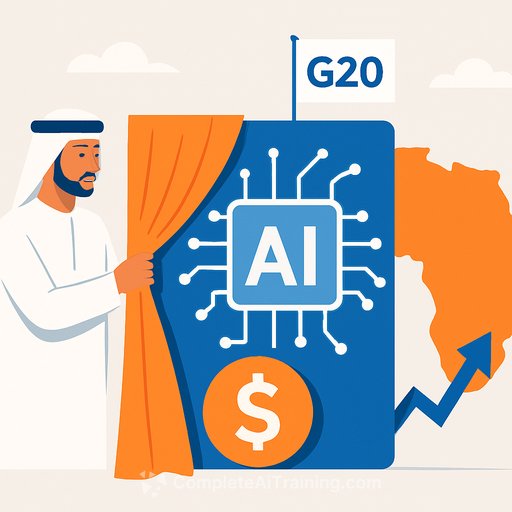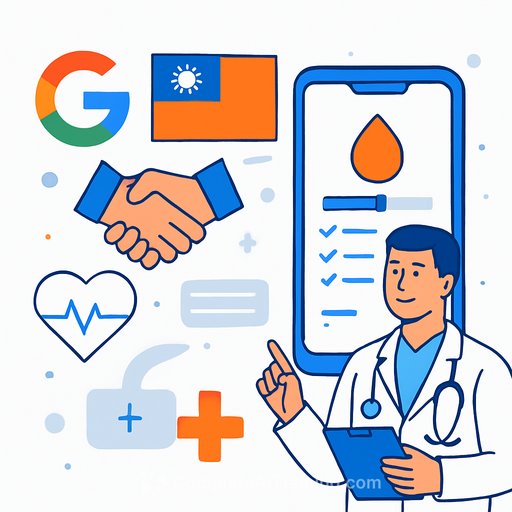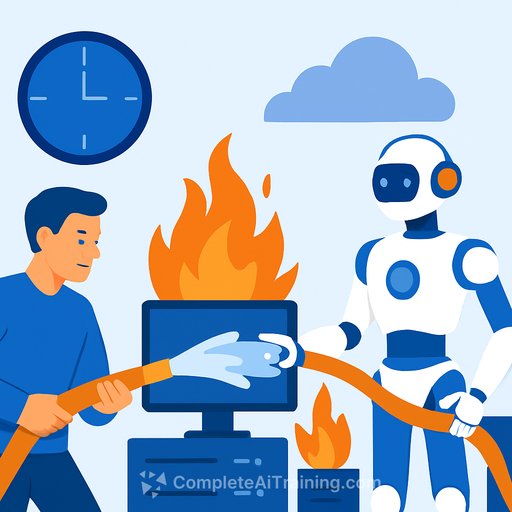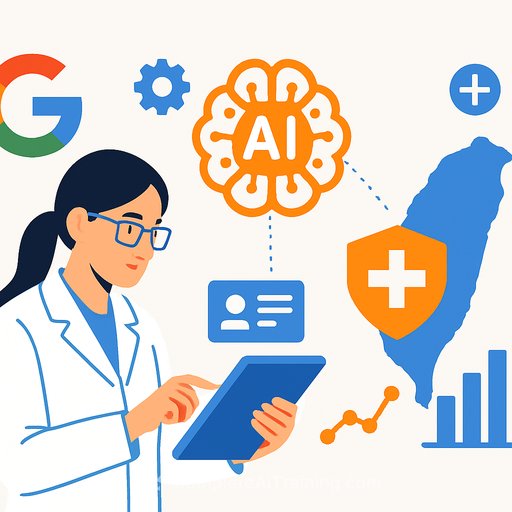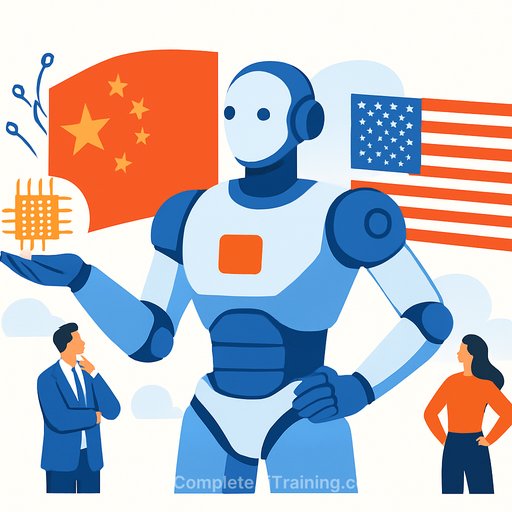UAE Unveils USD 1B "AI for Development" to Drive Africa's Growth
The UAE has launched a USD 1 billion "AI for Development" initiative to fund artificial intelligence projects across African countries. Announced at the G20 summit by His Highness Sheikh Khaled bin Mohamed bin Zayed Al Nahyan, the program targets digital infrastructure, public services, and productivity improvements. The intent is clear: use AI to speed up economic and social development where it can move the needle fastest.
Delivery will be led by the Abu Dhabi Exports Office (ADEX), the export financing arm of Abu Dhabi Fund for Development, working with the UAE Foreign Aid Agency. For engineering and product teams, that means a financing channel with institutional backing and a mandate for practical, high-impact deployments.
Who's Running It-and Why It Matters for Tech Teams
ADEX will structure and finance projects, while the UAE Foreign Aid Agency coordinates broader development objectives and partnerships. The initiative supports global sustainable development goals and the UAE's push to grow a knowledge-based economy that puts AI to work for real outcomes. Since 1971, the UAE has provided more than AED 152 billion in aid to African nations-this fund extends that track record into AI-driven projects.
As His Excellency Mohamed Saif Al Suwaidi noted, combining technology, financing, and partnerships can help countries tackle persistent development gaps and build long-term resilience. Dr. Tareq Ahmed Al Ameri emphasized the focus on lifting communities through high-impact solutions and strengthening global cooperation to improve living standards.
Where the Funding Will Likely Flow
- Education: adaptive learning platforms for low-connectivity environments, teacher support tools, student performance analytics, credentialing and digital ID.
- Agriculture: crop yield prediction, pest/disease detection, weather-informed advisories, supply chain traceability, market access tools for smallholders.
- Infrastructure: smart metering, predictive maintenance for roads and utilities, geospatial planning, e-government service delivery, identity and payments rails.
- Healthcare (noted as a critical need): triage assistants, telemedicine routing, inventory and cold-chain optimization, basic diagnostic support where clinicians are scarce.
Practical Implications for IT and Development Leads
- Procurement-readiness: prepare clear statements of work, measurable KPIs, and total cost of ownership models. Expect governance and audit requirements.
- Local partnerships: team up with African system integrators, universities, telcos, and civil society groups for context, adoption, and trust.
- Data strategy: data residency, privacy, consent, and sharing agreements first; model training second. Plan for data sparsity and noisy labels.
- MLOps at scale: reproducible pipelines, versioned datasets, model monitoring, drift detection, and retraining that works on intermittent networks.
- Model choices: favor efficient architectures (e.g., distillation, quantization) and low-resource NLP for local languages. Offline-first where needed.
- Compute and connectivity: use lightweight edge inference and caching. Where cloud is required, respect national policies and latency constraints.
- Localization: multilingual UX, culturally aware prompts, speech interfaces for non-literate users, and mobile-first design.
- Responsible AI: risk assessment, human-in-the-loop for sensitive decisions, transparent error handling, and grievance channels.
- Outcome tracking: align metrics to the UN SDGs-access, cost reduction, satisfaction, inclusion, and job creation-not just model accuracy.
- Security and resilience: threat modeling, basic zero trust practices, and offline fallbacks for service continuity.
How to Position Your Proposal
- Start with the problem and baseline: quantify current performance and the expected lift from AI.
- Use existing rails: integrate with government platforms, MNO APIs, and popular messaging apps to speed adoption.
- Interoperability: open standards, clean APIs, and clear data contracts to avoid lock-in.
- Capacity building: budget for training, documentation, and admin dashboards that local teams can maintain.
- Lean infrastructure: optimize for low bandwidth, low power, and affordable devices.
- Financial clarity: realistic capex/opex, sustainability beyond the grant, and a path to local ownership.
What We Know-and What's Next
The announcement came at the G20, signaling coordination with broader development agendas. Implementation will run through ADEX and the UAE Foreign Aid Agency, with additional program details expected through official channels. Keep an eye on eligibility criteria, application windows, and sector-specific RFPs as they roll out.
Context matters: each country has its own regulatory rules for data, AI use in public services, and procurement. Engage early with local authorities and standards bodies to de-risk compliance.
Skill Sets You'll Need on the Ground
- Data engineering for messy, sparse datasets and offline syncing.
- MLOps with lightweight deployment patterns and monitoring.
- Low-resource NLP and speech, especially for African languages.
- Product ops for last-mile delivery, support, and training.
- Security engineering and privacy-by-design.
If you're upskilling teams for this kind of work, see practical programs here: AI courses by job and popular AI certifications.
What Leaders Said
H.E. Mohamed Saif Al Suwaidi underscored that AI, paired with financing and partnerships, can drive equitable growth and durable development. He pointed to education, agriculture, and infrastructure as sectors where impact scales.
Dr. Tareq Ahmed Al Ameri highlighted the UAE's ongoing humanitarian and development role and the practical need for AI tools in countries facing serious gaps in education, healthcare, and infrastructure. He noted the UAE's growing position as a global center for AI across key sectors.
Bigger Picture
The initiative is dedicated to African countries and fits into the UAE's broader foreign assistance to the continent. With more than AED 152 billion in aid provided since 1971, this step channels new AI capabilities into projects that can deliver measurable public value.
For teams in IT and development, the opportunity is clear: propose solutions that ship, scale responsibly, and improve daily life. Build for constraints, measure what matters, and partner locally from day one.
G20 context provides a useful backdrop for cross-border collaboration and standards. Tie your outcomes to public-good metrics and you'll be speaking the same language as funders and governments.
Your membership also unlocks:

